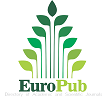Family-centered palliative care in pediatric oncology
Abstract
Cancer is a disease that affects one child for every 200 adults. It is the second leading cause of death in children aged 0-14 years after accidents. 80% of children diagnosed with cancer are cured of their disease in our country. However, approximately 20% eventually die from the disease or the side effects of treatment. Once the severity of
the disease is known and therefore its consequences, it is essential to try to integrate the disease into the normal life of the child, the family, and the surrounding environment. The aim is to turn the child into a physically, psychologically, socially, and spiritually healthy adult. To achieve this, the child must be the center of our work and should be attended to by a multidisciplinary team. Palliative Care should be started from the time of diagnosis for children with poor or no possibility of cure. For the rest of the children, it should be started in case of relapse. In the last days of life of any child, it is always offered the possibility of receiving this care at home, in the hospital, or in a combined modality (Mixed Palliative Care), where they receive part of the care at home and at the end of their life they move to the hospital to live their last days there. Medicine should not only focus on the patient, but also the family.
Downloads
References
Alvarez Avelló, R. y Alvarez Avelló A.(2017). La muerte digna, el gran dilema. Ed: Raitán Ediciones.
American Academy of Pediatrics. Committee on bioethics and committee on hospital care. Palliative care for children. Pediatrics. 2000; 106:351–357.
Benini, F. et. al (2022). Pediatric Palliative Care in Oncology: Basic Principles. Cancers, 14, 1972. doi.org/10.3390/cancers14081972
Jones, C. et. al (2017). Pediatric high-grade glioma: biologically and clinically need new thinking. Neurooncol. pp.153-161.PMID: 27282398
López-Ibor, B (2009). Aspectos médicos, psicológicos y sociales del cáncer infantil. Psicooncologia.
Lopez-Ibor, B (2019). Vivir sin pensar: sentimiento tóxico y Bioetica. Palabra. ISBN: 9788490619407
Mack, J. y Grier, H. (2004). The day one talk. Journal of clinical oncology. doi: 10.200/JCO.2004.04.078
Madero, L. y Muñoz, A. (2005). Hematología y Oncología Pediátricas.(2ª ed). Editorial Ergon ISBN: 9788484733676
Pérez-Iñigo, F. y Abarca, J. (2011). Un modelo de hospital: planificación, diseño, construcción, equipamiento, organización y gestión de un hospital privado. HM hospitales (3ª ed). ISBN: 9788460929918
Poplack,D.G. y Pizzo, P.A. (2015). Principles and practice in pediatric oncology. Wolters Kluwer. (7º ed) ISBN: 1451194234
Peris Bonet R, et. al (2022). Cáncer infantil en España. Estadísticas 2013-2021 Registro Nacional de Tumores Infantiles (RNTI-SEHOP). Valencia: Universitat de València.
Priego, R. (2022). Apoyo audiovisual como herramienta en cuidados domiciliarios para padres de niños con enfermedades hematologicas y oncologicas (enpreparación).[Trabajo Fin de Máster Universitario en enfermeria padiátrica y neonatal intrahospitalaria]. Universidad San Pablo CEU.
Rapoport, Adam y Meiring (2021). Oxford Textbook of Palliative Care for Children. Michelle Hain, Richard (EDT); Goldman, Ann (EDT); Editorial: OUP Oxford, 2021 ISBN 9780198821311
Sierrasesumaga, L. (2005). Tratado de oncología Pediatrica. Perason Educación ISBN:978-84-205-4248-5.
The authors retain copyright.
This work is under international license Creative Commons Attribution 4.0.
The articles published by the scientific journal "Notes on Bioethics" of the Universidad Catolica Santo Toribio de Mogrovejo, Chiclayo Peru, can be shared through the international public license Creative Commons Attribution CC BY 4.0
























 LIBRARY USAT
LIBRARY USAT